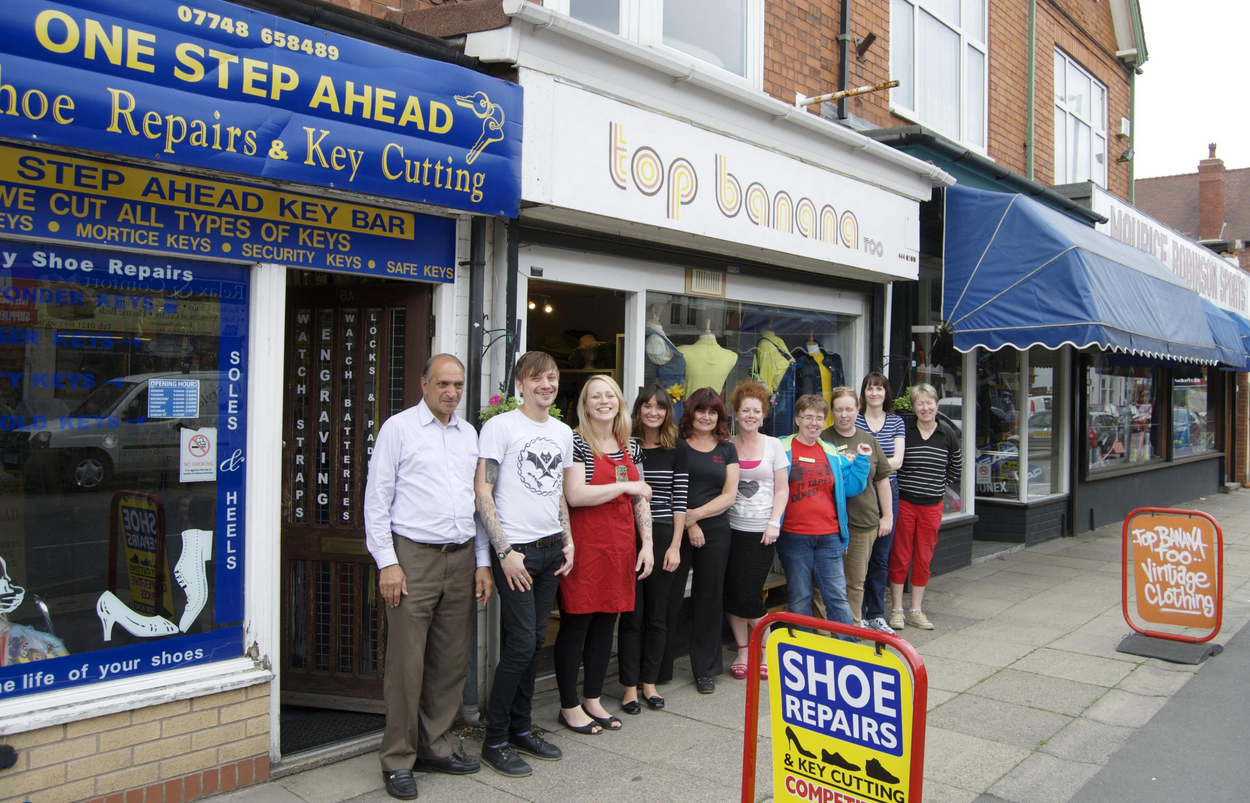With the rollout of chain stores in the 90’s, the internet revolution of the 00’s and clench of the recession in recent years, local businesses have always been forced into survival mode, with changes attacking them regularly and often. Whilst some individual businesses have wound down, there has not been a single dominant force that has wiped out local businesses all together. As the market picks up for 2015, here’s what we’ve learned about independent retailers that survived the recession and why we think the future will be bright.
1) Big business still cannot replicated the personal touch
For every supermarket clubcard or new fangled reward scheme, there are thousands of customers that “value” nothing more than good old fashioned “feeling valued”. This doesn’t always come in the form of scannable membership barcodes or automated vouchers. Customers still appreciate being called by their name simply because a staff member remembered it, rather than looking it up on a mass database. When you have just a few staff and the same customers coming in regularly, this is effortlessly possible and makes a huge difference.
2) Independent retailers sense trends without “big data”
Large retailers spend millions on finding out everything about their customers, from buying habits to food preferences, location and household sizes. This never ending collection of information is referred to as “big data” and used to help chain stores make marketing and commercial decisions. Smaller shop owners can pick up stock from wholesalers on a hunch, so if they know that Coke Zero is selling well in-store and Pepsi have just released a sugar free alternative, they may pick it up and take a punt.
A good shop owner knows how to take chances on new items based on intuition and can have products on shelves that they discovered just hours earlier. If the product isn’t a hit, it will typically just sell off slowly in time, but if customers love it they’ll be grateful you introduced them to it quickly without the long shelving process of a larger store.
3) Everyone benefits from bartering
Everyone loves a deal, not just getting one, but making one. Smaller shop owners have been known to offer on-the-fly combination deals, such as a £30 necklace and a £25 bracelet for a total of £50, to increase the transaction size and leave the customer with a sense of value. The lifetime value of that customer, who may come back for that experience again, is vital for repeat business.
4) Communities look local first
From a school fete to a charity fund raiser, local organisers rarely approach national businesses, instead choosing to head to the local butcher, baker or candle stick maker for a small prize donation or gift voucher. Event organisers then give shout outs, praise and even sometimes local press, which earns local businesses some great authentic coverage to keep them front of mind with customers.
5) Health and individuality are more socially important
Craft items, local GM free foods, dietary requirements such as halal and kosher meat, vegan and gluten free foods all thrived in local stores before being picked up by larger retailers. Although bigger stores have a wider selection, the stock choices at specialist stores can go deeper and can have more choice, bolstered further by staff with niche knowledge. Many customers of these stores also have an appreciation for the unique and non-standardised way the stores operate and that builds a certain cachet that is hard to replicate at scale with chain stores.
6) Local businesses have endless collaboration options
We’ve seen endless examples of coffee shops borrowing books from a second hand store, thus allowing customers to read and stick around longer to order more and newsagents allowing customers the option to lock their bikes outside on stands sponsored by another local business. Independent retailers have become versatile in the way they attract customers from other non-competing stores, communities or even tried and tested tricks like having a table to host flyers for other local stores. Every local business can benefit from collaborating and done well can often lead to great synergies where 1 + 1 equals 2.5.
Now we want to hear from you…
My team and I are now working on ways to gather more useful examples of tip and tricks as to how small businesses are leveraging what they learnt in the recession and preparing themselves for the recovery of the high street. As such, please either use the comments section below to share your story or discuss this one. Of course you can always contact me via sujan (at) carrierbagshop.co.uk.
Image source: The BIP Online


